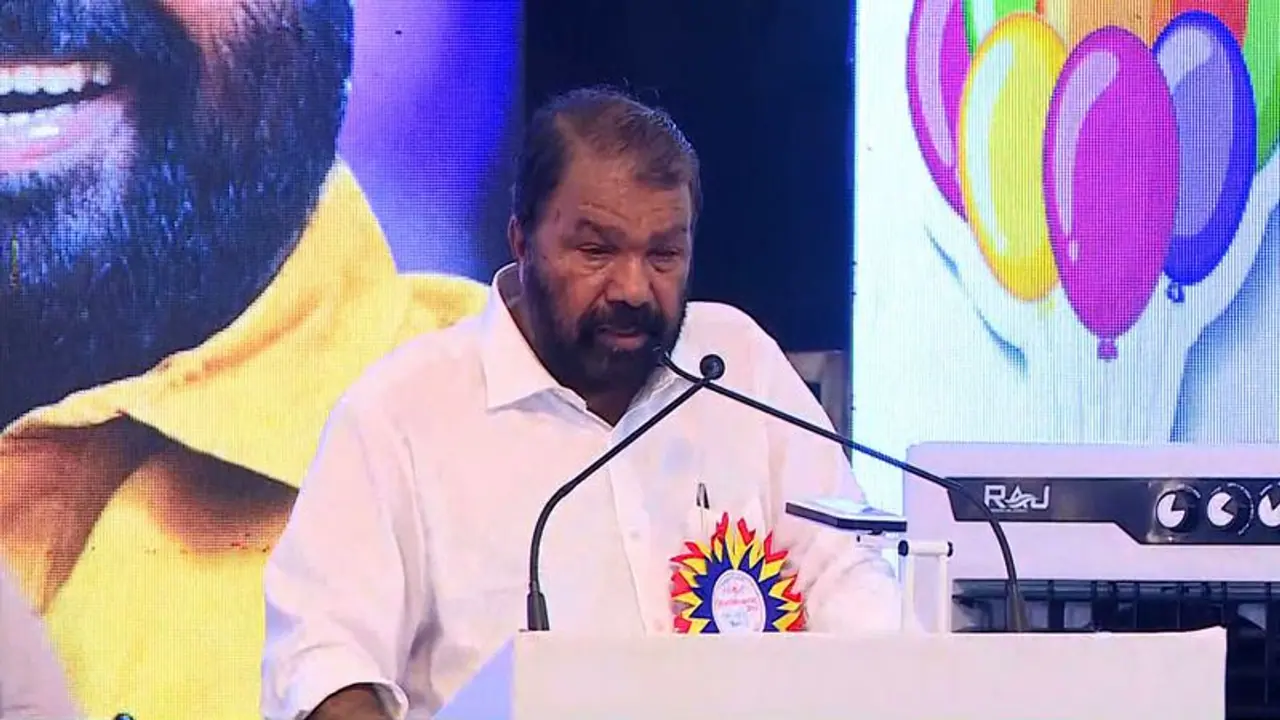Kerala General Education Minister V Sivankutty on Thursday said that the state's public educational institutions would attempt to maintain 210 working days for the academic year 2023-24. Kerala has received the top ranking in the NITI Aayog's School Education Quality Index.
Thiruvananthapuram: General Education Minister V Sivankutty on Thursday said that the state's public educational institutions would attempt to maintain 210 working days for the academic year 2023-24. He added that the mid-summer break will begin on April 6 henceforth. Earlier, the school ended on March 31. He was giving the keynote address at Malayinkeezhu Government School's entry festival programme.

Also read: Kannur train fire case: Windows broken to enter coach; more details emerge
According to him, the government is working to upgrade the school's physical campus and infrastructure so that it would support significant changes in the educational sector. As a result, there have been numerous successes. With money from KIIFB totaling Rs. 2309 crore, 973 schools had contemporary buildings built. Construction of physical amenities for 1300 schools will cost Rs. 1500 crore.
The minister said, "From eighth through twelfth grade, 45,000 classrooms have been made tech-friendly. There are computer laboratories in every primary and upper primary school. We now live in a state where all kids, regardless of their socioeconomic status, have unrestricted access to digital technology. Kerala is the first state in India to go entirely digital. A thorough portal has been built for the efficient use of contemporary technologies in the classroom. Engage in and put into practice numerous academic excellence initiatives."
For children who require learning support in the areas of language, science, social science, and mathematics, a particular programme has been developed and put into place. Every school has a planned academic master plan. In line with this, action plans were also created. "The process of making our state more accessible to people with disabilities is progressing swiftly," he said.
To keep all the kids together throughout the covid period, other activities have been introduced, including digital and online classes. Kerala has received the top ranking in the NITI Aayog's School Education Quality Index. A thorough plan has been developed to help kids develop the habit of being clean. The camp known as Harita Vidyalayam and Sanitation Vidyalayam has developed a necessary action plan. Before school started, the kids received their textbooks and uniforms.
E-Governance has been effectively implemented in the Department of Public Education.
Sivankutty continued, "Teachers were given training to upskill their teaching during the holidays. Large-scale discussions were organised to gather opinions from all facets of the community as part of the full maintenance of the school curriculum. This served to implement the wider goal of democratically soliciting public opinion. Additionally, the views of kids were sought after. This is the first time that the curriculum-development process has consulted with kids. Systemic adjustments are also crucial for the sustainability of academic revolutions. According to the recommendations made in the first section of the report, which was led by Prof. M.A. Khader, the structural alteration was authorized."
The Minister noted that we should aim to develop a society where mutual cooperation, co-existence, distributive justice, democracy, and secularism are the way of life, along with developing the knowledge, skills, and confidence in children.
Also read: End of summer holidays: Schools reopen in Kerala today; CM inaugurates 'Praveshanolsavam'
